THCA Hemp Flower
$160.00 – $750.00Price range: $160.00 through $750.00
THCA Hemp Flower: Everything You Need to Know
THCA hemp flower has rapidly gained popularity among hemp users looking for the benefits of cannabis without its psychoactive effects. Known for its distinct qualities and its unique relationship with THC, THCA hemp flower is a new frontier in both wellness and hemp product innovation. In this article, we’ll dive into everything from what THCA is and how it works to its benefits, legal status, and how it compares with other popular cannabis products.
Introduction to THCA Hemp Flower
THCA hemp flower is a raw, non-psychoactive hemp plant product high in tetrahydrocannabinol acid (THCA). While most people associate THC with the “high” from cannabis, THCA is a naturally occurring cannabinoid in raw cannabis and hemp that doesn’t have psychoactive effects in its native form. However, under heat, THCA converts into THC, delivering effects more typically associated with traditional cannabis.
What is THCA?
THCA, or tetrahydrocannabinol acid, is a cannabinoid found in raw cannabis and hemp plants. Unlike THC, which is famous for its psychoactive effects, THCA is not intoxicating. It’s only when THCA is heated that it transforms through a process known as decarboxylation to become THC. As a result, raw hemp flowers rich in THCA offer different benefits from THC.
How THCA Differs from THC
THCA is essentially the “precursor” form of THC. When you smoke or heat cannabis, THCA undergoes decarboxylation, a chemical reaction that removes a carboxyl group and turns it into THC. THCA in its original form does not produce the “high” associated with THC, making it attractive for users seeking non-intoxicating effects while enjoying potential therapeutic benefits.
Understanding Hemp Flower vs. Marijuana Flower
Hemp and marijuana are two varieties of the Cannabis sativa plant, differing mainly in THC concentration. Legally, hemp is defined as cannabis containing less than 0.3% THC by dry weight, while marijuana has higher THC levels. THCA hemp flower, although it can have high THCA content, remains compliant with THC limits in raw form, making it federally legal in the United States under certain guidelines.
Benefits of THCA Hemp Flower
Research into THCA is ongoing, but early studies and anecdotal reports suggest it may have several therapeutic benefits:
- Anti-Inflammatory Properties: THCA shows promise in reducing inflammation, which can benefit conditions like arthritis.
- Neuroprotective Effects: THCA may help protect the nervous system, possibly benefiting neurodegenerative conditions.
- Anti-Nausea and Appetite Stimulation: Some users find it helps with nausea and boosts appetite, similar to THC but without the high.
How THCA Works in the Body
THCA interacts with the body’s endocannabinoid system (ECS), a network of receptors responsible for maintaining balance in various bodily functions, including mood, appetite, and immune response. THCA’s effects on the ECS are less direct than THC’s, but they can support wellness and provide therapeutic benefits without psychoactive side effects.
Legal Status of THCA Hemp Flower
In the U.S., the legal status of THCA hemp flower is complex. Federally, hemp products containing less than 0.3% THC are legal, but states may have differing laws around raw hemp products. Additionally, THCA products that could potentially convert to THC are often scrutinized, especially if they are used in ways that can decarboxylate THCA into THC.
Methods of Using THCA Hemp Flower
THCA hemp flower can be used in several ways:
- Smoking: Provides the most immediate effects and the most efficient conversion of THCA to THC.
- Vaping: Allows users to control the temperature, which can limit or enable decarboxylation depending on preference.
- Raw Consumption: Adding raw THCA hemp flower to smoothies or juices retains its form without psychoactive effects.
Decarboxylation of THCA to THC
Decarboxylation is the process that transforms THCA into THC, typically occurring at temperatures around 220°F (104°C). When smoking or vaping, decarboxylation happens instantly due to high heat, but for those seeking only THCA’s effects, keeping the product raw or consuming it at low temperatures is key.
THCA Hemp Flower vs. CBD Flower
While both THCA and CBD are non-psychoactive cannabinoids, they interact differently with the ECS:
- CBD is known for its calming effects, widely used for anxiety, and doesn’t convert to THC under heat.
- THCA, on the other hand, offers therapeutic potential that includes pain relief and inflammation reduction, but can convert to THC if decarboxylated.
Potential Side Effects and Safety Concerns
Though non-psychoactive, some users may experience mild side effects from THCA, including dry mouth or mild dizziness. Individuals with certain medical conditions or those on medications should consult a healthcare professional before using THCA products.
Choosing Quality THCA Hemp Flower
Quality is critical when selecting THCA hemp flower. Look for:
- Lab Testing: Verifies potency, purity, and safety from contaminants.
- Terpene Profiles: Terpenes influence flavor, aroma, and therapeutic effects.
- Reputable Sources: Choose brands known for transparent practices and high-quality standards.
How to Store THCA Hemp Flower
Proper storage is essential for preserving potency. Store in a cool, dark place with low humidity, and use airtight containers to prevent exposure to air and light, which can degrade cannabinoids and terpenes.
Popular Strains of THCA Hemp Flower
Several strains of THCA hemp flower offer distinct flavors and effects, including:
- Sour Diesel: Known for energy-boosting effects and citrusy flavor.
- OG Kush: Popular for relaxation, with earthy undertones.
- Blue Dream: A hybrid that balances calming and uplifting effects.
The Future of THCA Hemp Flower in Wellness
As consumer interest in natural health products grows, THCA hemp flower is positioned as a popular wellness option. Emerging research may further clarify THCA’s therapeutic potential, and we may see increased demand for non-psychoactive cannabinoids in health and wellness products.
Frequently Asked Questions (FAQs)
1. Is THCA legal in all states? While hemp products with less than 0.3% THC are federally legal, individual states may have additional restrictions. Always check your state laws.
2. Does THCA cause a high? No, THCA is non-psychoactive unless it’s decarboxylated to become THC.
3. Can THCA hemp flower be used in edibles? Yes, but consuming it raw keeps THCA intact. Baking or heating will convert it to THC.
4. What’s the best way to consume THCA without getting high? Using THCA hemp flower in smoothies or cold recipes avoids decarboxylation, keeping THCA in its original, non-psychoactive form.
5. How can I tell if my THCA hemp flower is high quality? Look for lab testing results, a strong terp
Introduction to THCA Hemp Flower
THCA hemp flower is a raw, non-psychoactive hemp plant product high in tetrahydrocannabinol acid (THCA). While most people associate THC with the “high” from cannabis, THCA is a naturally occurring cannabinoid in raw cannabis and hemp that doesn’t have psychoactive effects in its native form. However, under heat, THCA converts into THC, delivering effects more typically associated with traditional cannabis.
What is THCA?
THCA, or tetrahydrocannabinol acid, is a cannabinoid found in raw cannabis and hemp plants. Unlike THC, which is famous for its psychoactive effects, THCA is not intoxicating. It’s only when THCA is heated that it transforms through a process known as decarboxylation to become THC. As a result, raw hemp flowers rich in THCA offer different benefits from THC.
How THCA Differs from THC
THCA is essentially the “precursor” form of THC. When you smoke or heat cannabis, THCA undergoes decarboxylation, a chemical reaction that removes a carboxyl group and turns it into THC. THCA in its original form does not produce the “high” associated with THC, making it attractive for users seeking non-intoxicating effects while enjoying potential therapeutic benefits.
Understanding Hemp Flower vs. Marijuana Flower
Hemp and marijuana are two varieties of the Cannabis sativa plant, differing mainly in THC concentration. Legally, hemp is defined as cannabis containing less than 0.3% THC by dry weight, while marijuana has higher THC levels. THCA hemp flower, although it can have high THCA content, remains compliant with THC limits in raw form, making it federally legal in the United States under certain guidelines.
Benefits of THCA Hemp Flower
Research into THCA is ongoing, but early studies and anecdotal reports suggest it may have several therapeutic benefits:
- Anti-Inflammatory Properties: THCA shows promise in reducing inflammation, which can benefit conditions like arthritis.
- Neuroprotective Effects: THCA may help protect the nervous system, possibly benefiting neurodegenerative conditions.
- Anti-Nausea and Appetite Stimulation: Some users find it helps with nausea and boosts appetite, similar to THC but without the high.
How THCA Works in the Body
THCA interacts with the body’s endocannabinoid system (ECS), a network of receptors responsible for maintaining balance in various bodily functions, including mood, appetite, and immune response. THCA’s effects on the ECS are less direct than THC’s, but they can support wellness and provide therapeutic benefits without psychoactive side effects.
Legal Status of THCA Hemp Flower
In the U.S., the legal status of THCA hemp flower is complex. Federally, hemp products containing less than 0.3% THC are legal, but states may have differing laws around raw hemp products. Additionally, THCA products that could potentially convert to THC are often scrutinized, especially if they are used in ways that can decarboxylate THCA into THC.
Methods of Using THCA Hemp Flower
THCA hemp flower can be used in several ways:
- Smoking: Provides the most immediate effects and the most efficient conversion of THCA to THC.
- Vaping: Allows users to control the temperature, which can limit or enable decarboxylation depending on preference.
- Raw Consumption: Adding raw THCA hemp flower to smoothies or juices retains its form without psychoactive effects.
Decarboxylation of THCA to THC
Decarboxylation is the process that transforms THCA into THC, typically occurring at temperatures around 220°F (104°C). When smoking or vaping, decarboxylation happens instantly due to high heat, but for those seeking only THCA’s effects, keeping the product raw or consuming it at low temperatures is key.
THCA Hemp Flower vs. CBD Flower
While both THCA and CBD are non-psychoactive cannabinoids, they interact differently with the ECS:
- CBD is known for its calming effects, widely used for anxiety, and doesn’t convert to THC under heat.
- THCA, on the other hand, offers therapeutic potential that includes pain relief and inflammation reduction, but can convert to THC if decarboxylated.
Potential Side Effects and Safety Concerns
Though non-psychoactive, some users may experience mild side effects from THCA, including dry mouth or mild dizziness. Individuals with certain medical conditions or those on medications should consult a healthcare professional before using THCA products.
Choosing Quality THCA Hemp Flower
Quality is critical when selecting THCA hemp flower. Look for:
- Lab Testing: Verifies potency, purity, and safety from contaminants.
- Terpene Profiles: Terpenes influence flavor, aroma, and therapeutic effects.
- Reputable Sources: Choose brands known for transparent practices and high-quality standards.
How to Store THCA Hemp Flower
Proper storage is essential for preserving potency. Store in a cool, dark place with low humidity, and use airtight containers to prevent exposure to air and light, which can degrade cannabinoids and terpenes.
Popular Strains of THCA Hemp Flower
Several strains of THCA hemp flower offer distinct flavors and effects, including:
- Sour Diesel: Known for energy-boosting effects and citrusy flavor.
- OG Kush: Popular for relaxation, with earthy undertones.
- Blue Dream: A hybrid that balances calming and uplifting effects.
The Future of THCA Hemp Flower in Wellness
As consumer interest in natural health products grows, THCA hemp flower is positioned as a popular wellness option. Emerging research may further clarify THCA’s therapeutic potential, and we may see increased demand for non-psychoactive cannabinoids in health and wellness products.
Frequently Asked Questions (FAQs)
1. Is THCA legal in all states? While hemp products with less than 0.3% THC are federally legal, individual states may have additional restrictions. Always check your state laws.
2. Does THCA cause a high? No, THCA is non-psychoactive unless it’s decarboxylated to become THC.
3. Can THCA hemp flower be used in edibles? Yes, but consuming it raw keeps THCA intact. Baking or heating will convert it to THC.
4. What’s the best way to consume THCA without getting high? Using THCA hemp flower in smoothies or cold recipes avoids decarboxylation, keeping THCA in its original, non-psychoactive form.
5. How can I tell if my THCA hemp flower is high quality? Look for lab testing results, a strong terp
| THCA | 1oz, 1/4 Lb, 1/2 Lb, 1 Lb |
|---|
Be the first to review “THCA Hemp Flower” Cancel reply
Related products
Cannabis Concentrates
Marijuana Flower
Hybrid Strains
Hybrid Strains
Hybrid Strains
Marijuana Flower
Sativa strains
Sativa strains


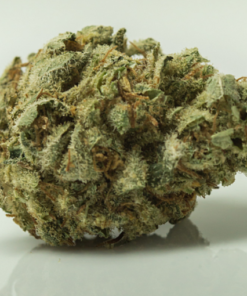


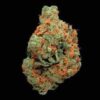



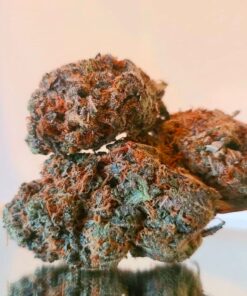
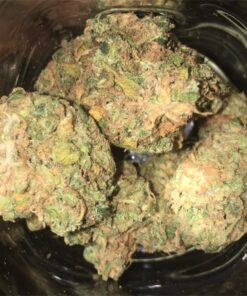



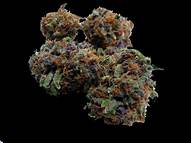


Reviews
There are no reviews yet.